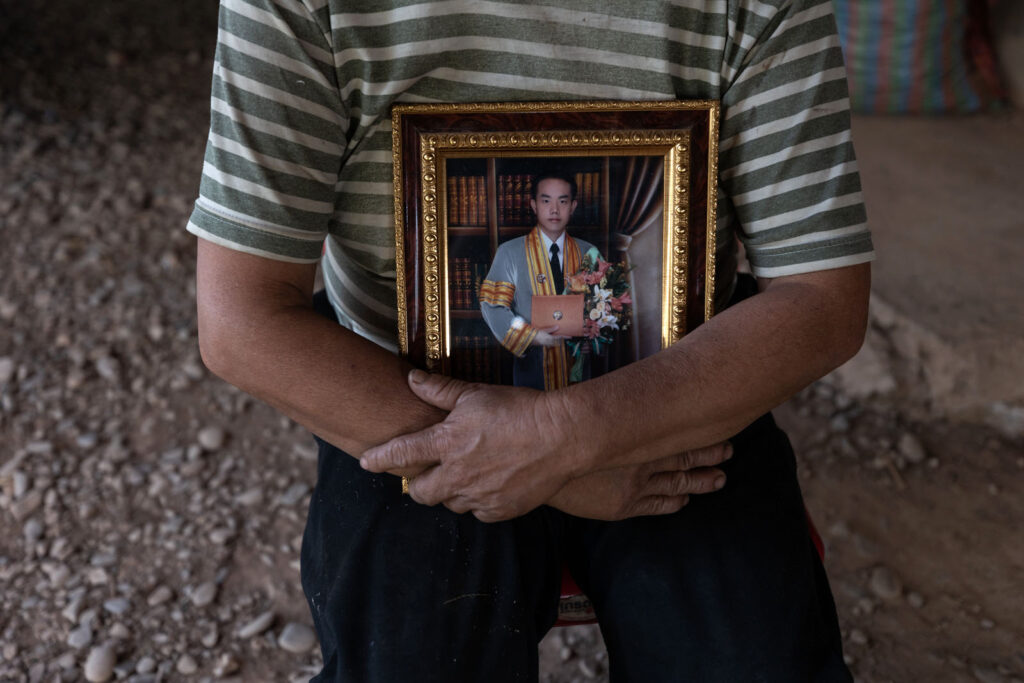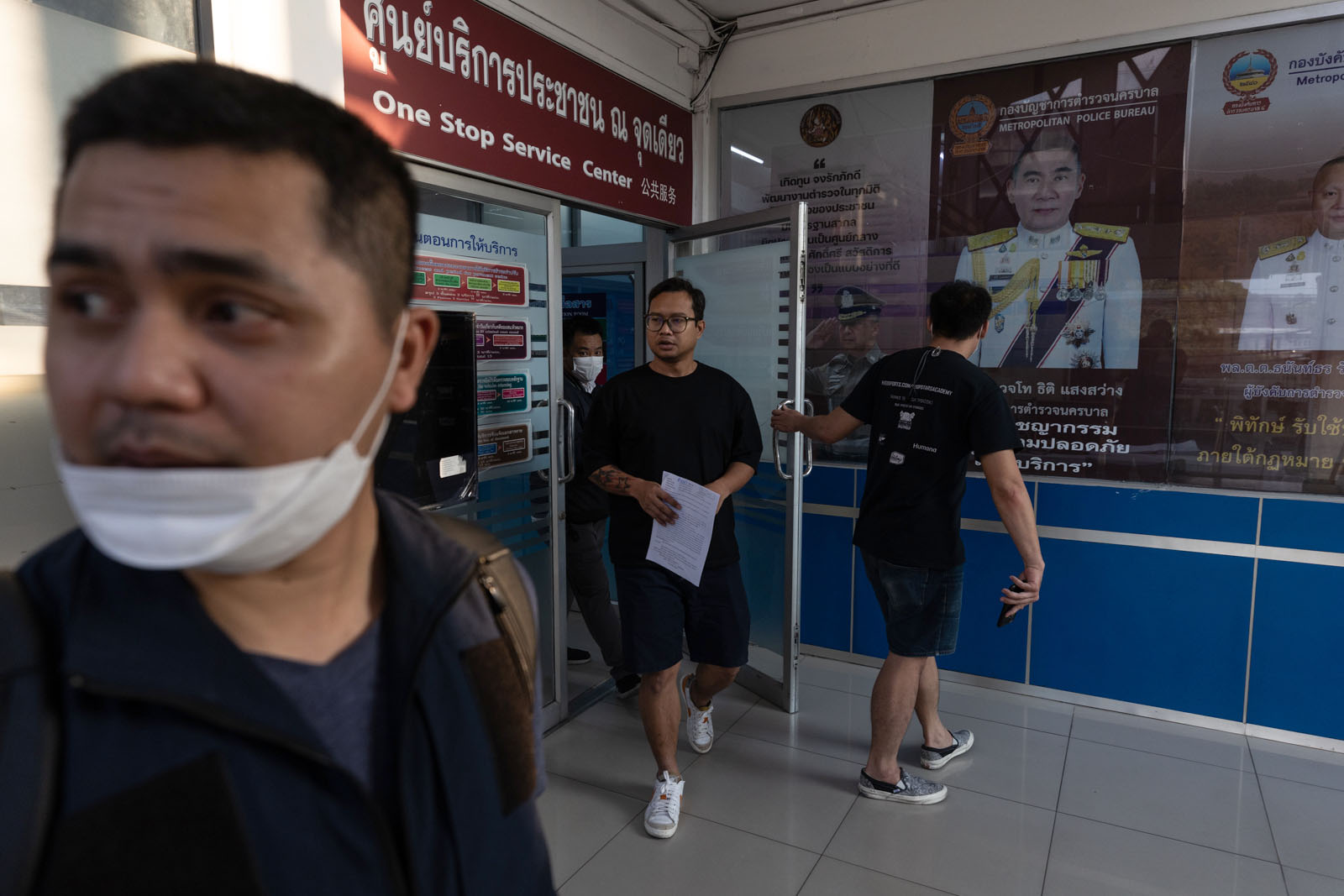This article was originally published on HaRDstories.
Chiang Rai, Thailand — Eight people forced into criminal activities by transnational crime groups were acquitted by a provincial court in northern Thailand on 15 July, in a landmark ruling that recognised them as trafficking victims rather than criminals.
The Chiang Rai Provincial Court cleared the defendants of charges including involvement with a transnational criminal organisation, human trafficking, computer-related offences, and crimes against liberty. The court ruled that the eight were not participants in human trafficking but rather victims of it.
Two of the defendants, Prapas Kittiloes and Nanthaphan Yaemmanat, had been lured to work in Laukkaing, a town in northeastern Myanmar near the Chinese border. HaRDstories has been following their cases since 2023. They were rescued and brought back to Thailand in November 2023, only to face arrest warrants from Chiang Rai Provincial Police – despite Nanthaphan having already been identified as a trafficking victim through a preliminary screening.
Both men spent a year and seven months in Chiang Rai Provincial Prison without bail whilst fighting their case.
“I feel so relieved and incredibly happy to be out of prison now,” Nanthaphan said one day after his release. He was travelling to Bangkok as a confirmed victim.
Before his arrest, Nanthaphan had tried to submit evidence proving his innocence, including documentation of his pleas for help whilst held by scammers in Myanmar. But the Chiang Rai Provincial Police reportedly did not consider this evidence when preparing the case.
The court’s ruling was clear: “The eight defendants were subjected to duress by Chinese scammer groups. The defendants were not in a position to make autonomous decisions and are therefore not considered participants in or beneficiaries of the said organisation.”

Flaws in victim screening system
Jaruwat Jinmonca, vice-chairman of the Immanuel Foundation, which assisted both men, told HaRDstories that they are waiting to see if prosecutors will appeal. If the judgement becomes final, they plan to seek compensation through the courts.
Jinmonca said the prosecution resulted from officials who lacked knowledge of Thailand’s 2017 Anti-Trafficking in Persons Act. “The police operated on the assumption that these individuals were criminals, without subjecting them to the proper human trafficking victim screening process,” he said.
The case exposes wider problems in Thailand’s victim identification system, which operates under National Referral Mechanism (NRM) guidelines designed to identify and protect trafficking victims. Nanthaphan himself reflected that the screening process needs clearer procedures and better-trained personnel to prevent similar injustices.
Evolving threat
Meanwhile, the trafficking threat is evolving. Jinmonca warned that thousands of Thais are being trafficked into Cambodia, where crime groups have become more sophisticated in their recruitment. They advertise legitimate jobs – technicians, housekeepers, security guards – then force victims to open bank accounts, so-called “mule accounts” – used for money laundering by scammer groups.
Many victims face the same judicial ordeal that Prapas and Nanthaphan endured when they returned to Thailand.
Nanthaphan now plans to work in civil society, sharing his experiences and pushing for improvements to the victim screening process. Both men have been invited to work with the Immanuel Foundation to help prevent trafficking and assist other victims.
Read the full story of Prapas and Nanthaphan: Scammed, enslaved, arrested: The triple tragedy of Thailand’s cyber scam victims
